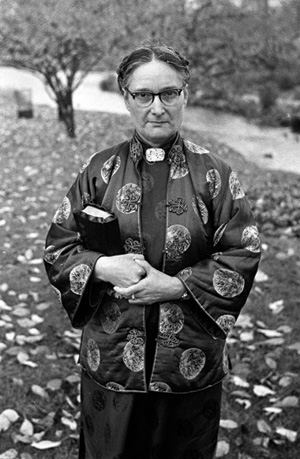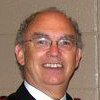How many other saints are out there unrecognized?

At birth, Brother Andre was so weak that a priest baptized him the very next day for fear that he might die. The sickly boy lived, one of 10 children in a poverty-stricken family. His father died in a lumber accident when Alfred was nine. His mother died three years later of tuberculosis.
Barely able to write his own name or read, and in poor health, Alfred nevertheless set about to earn his way in the world. During his teens and early 20s, he went from job to job on construction projects, farms and textile mills. He tried apprenticeship as a tinsmith, a blacksmith, a baker and a shoemaker. Then, at the age of 22, he presented himself as a candidate for the ministry.
When the decision-makers looked at this almost illiterate candidate who was sickly and weak, they had doubts about his calling and grave reservations about accepting him into the work. But accept him they did, though they never expected him to ever become or do much. They assigned him the duties of porter at Notre-Dame College, a lowly job that included washing floors, cleaning lamps and bringing in firewood.
Brother Andre had the one saintly quality that qualifies all candidates for the ministry: he cared about people. It was not long before he began to minister to the sick and the broken-hearted, praying with them and inviting them to pray. For the next 25 years, he spent six to eight hours a day ministering to those who came to him and after that he visited the sick outside the religious grounds.
How many saints are denied the opportunity to minister because they do not meet the religious qualifications of their church?
I wonder if The Salvation Army has not raised the qualifications for entry into the training college so high that many of the saints among us no longer have the privilege of ministry. Time was when officers in the Army were considered lay ministers. They came out of the taverns and gutters, got gloriously saved, proved themselves to their corps comrades to be blood and fire soldiers and then went into training for several months or a year. Some of them could barely read and write, but they cared about people and they loved the Lord. They were trained to do the work and they were commissioned to serve. They were not ordained. No one was denied ministry opportunities because they were not Bible scholars. Very few knew Greek or had ever seen the inside of a university. They were called, they cared and they were committed. In the eyes of the early Army leaders, that qualified them more than anything else to be welcomed into the ranks of officership.

Another “saint” who had great difficulty getting into the ministry was Gladys Aylward. Born into a working class Anglican family in London, England, in 1902, she earned enough education to qualify as a parlourmaid at the age of 14. At 18, she committed her life to Christ in a revival meeting and felt God calling her to missionary work in China. However, the decision-makers at the China Inland Mission judged her inadequate and told her that she was not suitable to be a missionary. But Gladys was determined to answer God's call, and when Jeannie Lawson, an aging missionary, invited her to come to China to assist her, Gladys saved enough money for a perilous train journey across Russia to northern China. With only her passport, a Bible and two pounds ninepence in her purse, she made the journey to Yangchen.
Gladys learned the Chinese language and, with Jeannie, opened an inn for travellers where she told them Bible stories to entertain them in the evenings. When Jeannie died, Gladys took over the work and began taking care of unwanted children. When the Second World War broke out, she turned her inn into an orphanage for children and a hospital for wounded soldiers. The Japanese accused her of spying and put a bounty on her head. She was forced to take her 100 orphans and begin a dangerous 160-kilometre trek through forests and mountains to the province of Sian. Although suffering from typhus, pneumonia and malnutrition, she brought her charges safely through. Her exploits are told in the 1957 movie Inn of the Sixth Happiness, starring Ingrid Bergman.
Not bad for someone who was considered unsuitable for missionary work.
Gladys was never officially declared a saint. Protestant churches don't have that tradition. However, in China, she was known as Ai-weh-dah, the Virtuous One.
As we look upon the dearth of officers in the Canada and Bermuda Territory, we need to ask whether or not the Army has set the bar too high. Or perhaps a better question is: are we using the wrong standards to measure a person's qualifications for ministry?
Brother Andre and Sister Gladys were both considered unlikely candidates for ministry. Both went on to become shining examples of how God chooses the weak things of this world to confound the mighty. Let the saints be praised.
 Major Fred Ash is the corps officer at Burlington Community Church, Ont.
Major Fred Ash is the corps officer at Burlington Community Church, Ont.









Sometimes we as christians hear God's call to full time ministry whether as a leaders in our churches or as a commissioned officer or ordained minister of the Gospel, and we get discouraged when God says YES but man says NO. Remember that when God says YES, he always gets His way, one way or another.